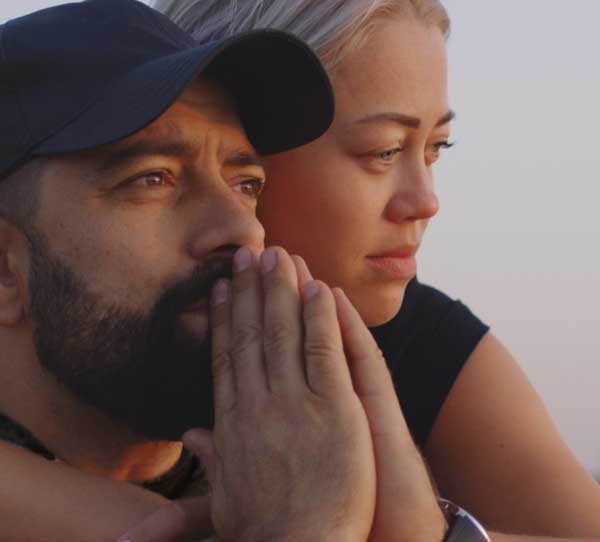
Setting Goals in Addiction Recovery
Have you ever set a goal in your life? Or sat down and wrote out a list of tasks you wanted to accomplish? As a newly sober man or woman, have you ever considered some goals in addiction recovery?
As it often turns out, our list of unaccomplished goals can end up longer than a list of those we have accomplished. Is a sheer lack of motivation? Maybe we aren’t setting the right goals? Whatever the case may be, it is not uncommon for us to be left scratching our head why we have trouble finishing what we have started.
Our goals at times seem so monumental that we cannot imagine completing them. Overwhelmed by an apparent inability to reach the finish line, we quit or often don’t even make the attempt. This can be crippling for an addict or alcoholic early in recovery whose objective is to accomplish a life of permanent sobriety, a lofty goal. Sobriety is a culmination of little victories, and completion of daily, practical goals is vital. While making “permanent sobriety” a goal isn’t a bad thing by any means, it will not result in much if it isn’t backed by these daily and short term objectives.
Recovery from addiction is a long term goal that while often highly desirable, is usually not one that can be accomplished easily. Going to a 12-step meeting 5 times this week is a short term goal that may not be desirable, but is most certainly achievable. The trick is to make the connection between the undesirable short term goal and what we ultimately want to achieve. Writing down our long term goals along with why we want to achieve them and keeping them where we can see them is a useful tool to keep ourselves motivated; but in order to reach the mountain top, we have to take small steps first.
Some daily goals in addiction recovery might be:
- Meditating for ten minutes
- Asking five people if they need help
- Talking with one person about how you’re feeling
- Reading something spiritual or motivating
- Exercising for 30 minutes
- Working on an assignment your sponsor gave you
- Calling a friend you haven’t spoken with in a while.
A SMART Strategy for Setting Goals in Addiction Recovery
S.M.A.R.T. is an acronym for a system of setting goals and emphasizes that how you set goals is important to actually completing them.

Specific: your goal needs to be clear and concise; you need to know exactly what you are trying to do.
Measurable: you must be able to clearly understand when your goal is complete, or how much further you need to go.
Attainable: your goal must actually be achievable at some point.
Relevant: you must ask yourself, “Why do I want to make this my goal?”
Time-Bound: you must set a timeline and deadline for when the goal is to be completed.
Whether or not you use SMART, consider it as a framework for how you set your goals. While a goal like “get sober” seems overwhelming, this system allows you to dismantle, analyze and plan in a way that builds motivation for change.
While we all learn, act, or think differently, it is important for us to develop a system that works based on our own strengths and weaknesses. Let’s look at an example of two students.
Adam and Brad receive an assignment to write a research paper. Both men are intelligent and have an earnest desire to do well.
Adam’s first move is to set a timeline for when he’d like to complete his research, his first draft, and the finished product. He takes a moment to reflect whether or not he’ll be able to meet those deadlines. He concludes that he is ready and begins his research. Despite his tendency to procrastinate, Adam is able to complete his research in a timely manner by setting aside about an hour each day to do some work. A week before the paper is due, he finishes his research and is nearly finished with his first draft. He had initially planned on being done with his first draft ten days before his deadline, but he isn’t worried. Seven days is plenty of time to edit and finish his paper, provided he spends an hour or two each day for the next couple of days. Adam finishes with two days to spare and looks proudly on his work.
Brad gets to work researching and finishes quickly as he enjoys digging through the various topics. Writing has proven to be difficult in the past because he is easily distracted, and, as it turns out, he doesn’t get much done on his first draft over the next couple of weeks. Three days before the paper is due, Brad finishes his first draft. However, he had crammed the majority of writing into a space of a few days and as a result, had a massive amount of edits he needed to make. It takes him a day just to get through the first page, and he begins to feel overwhelmed. He decides it’s easier to just throw in the towel and hand in what he has. He gets a C.
Adam and Brad are essentially the same person. When considering what he wanted to achieve, Adam put some work into thinking how he would do so, taking into account his weaknesses. He knew a positive attitude and intelligence alone were not enough to tackle the assignment. On the other hand, Brad jumped in head first. No thought was given into how he’d actually go about writing this paper, aside from what was immediately apparent. His grade suffered as a result.
Everyone at some point will undertake a task that has multiple components and spans over a large period of time. People often muscle through it and get by. However, people in recovery don’t want to just get by. We want to crush it. And crushing it requires creating a strategy for how a task is to be accomplished. Recovery is a fantastic goal to have. How are you going to get there?
As always, if you or a loved one are struggling, please do not hesitate to reach out. Our Executive Director is ready and waiting for your call to point you in the direction of proper treatment services.




